Border to Border: a Journey Through Afghanistan
The mention of “Afghanistan” itself raises quite a few eyebrows, let alone in the context of crossing it by car. Here's my account, as a woman, of that travel.
There are certain endeavors we embark in knowing well beforehand they might be a once-in-a-lifetime kind of thing. We certainly don’t have a crystal ball, but it is safe to say we won’t find ourselves at the doors of Afghanistan anytime soon again.
It all started in Termez, Uzbekistan, where we had to obtain Afghan visas. Before we visited the Afghan consulate, we went to a nearby print shop to print our visa applications. The office looked closed, as always in Central Asia, but inside was sitting a very friendly young guy. As he tried opening our files on his computer, I leaned in to show him which ones it was. His background picture appeared before me: a close-up portrait of Ahmad Shah Massoud. Also known as the Lion of the Panjshir, Massoud fought for Afghanistan first against the Soviet invasion in the 1980s and then against the Taliban in the 1990s. He was an emblematic symbol of the people of Afghanistan – as a matter of fact, he still very much is. The fact that he was ordered to be killed by Al Qaeda right before the attacks in September 2001 goes a long way to show how close he was to giving Afghanistan its first chance at moderate Islamic culture in decades and therefore, how threatening he appeared to the Taliban and Al Qaeda. Seeing his face on a computer screen in the print shop adjacent to the Afghan consulate – ran by the Taliban – is only one of the countless examples of the paradoxes that carve Afghanistan’s path.
The Taliban government, recognized officially by precisely no country in the world, is currently promoting tourism as a mean to push their political agenda. For that reason, we assumed we would feel welcome in applying for a visa. Let’s say we discovered that our notion of welcome slightly differs from the Taliban’s. The way we were questioned at the consulate sounded more like a secret service interview and started off on a highly tense note. That the office was a windowless room in the basement of a house where we weren’t allowed to bring our phones didn’t help. We were questioned on the nature of our relationship, the reason for our travels, how we can afford to travel and were asked to send pictures of our van, inside and out. In the end, we were granted a tourist visa that we could pick up the next day.
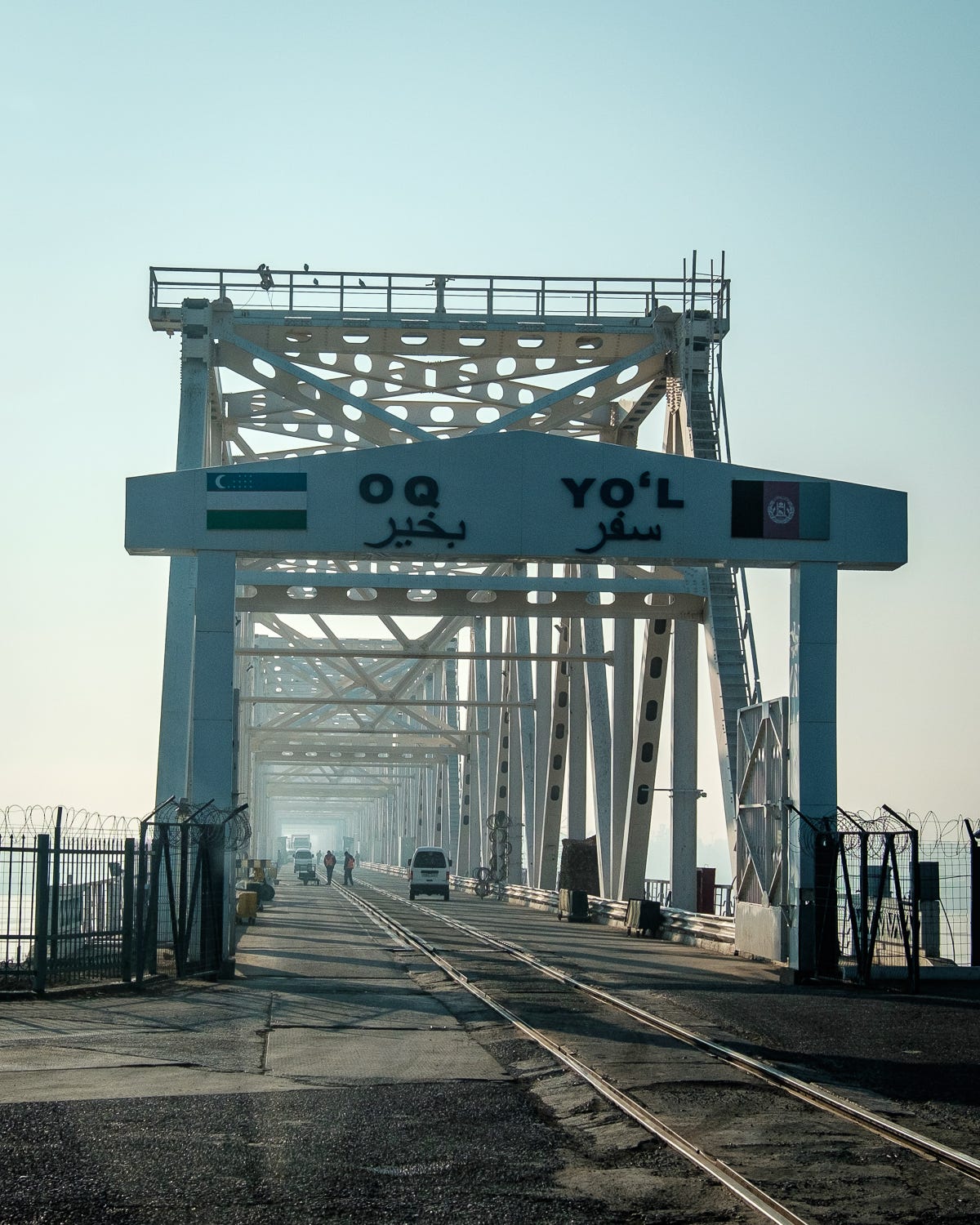
On the morning of 27th December, I put on my widest pants and longest t-shirt as well as a thick turtleneck sweater. I kept the loose scarf I had bought at the bazar the day prior next to me. Because our car documents are in my name, our Afghan road pass also is and that’s why I drove our van across the border, Xavier as a passenger. We cleared the Uzbek side in typical Uzbek border fashion: lengthy, inefficient and slightly sexist. We then crossed the Friendship bridge, separating Uzbekistan from Afghanistan. As I pulled my scarf over my head, we crossed dozens of pedestrians coming into Termez. From the asphalted roads of Uzbekistan, we reached a sandy compound. The Russian-caps, military-green uniforms and heavy army boots were replaced by cotton suits and light slippers. The officers had long scarves covering their head and golden jewelry.
To say they were more rustic on the Afghan side than any other border we crossed is an understatement. For the first time, our toilet box was checked – all previous officers to whom we said this was the toilet always closed it quickly. This barefoot officer ended his toilet check with “Very good”. Another officer’s hands black with dirt moving around my silk pillowcase was a visual clash between their world and mine. I did change my pillowcase that same night.
We had driven 30km when we reached the third road check point, at the entrance of the Mazar-i-Sharif province. The officer greeted us, asked how we were, where we’re from, checked our passports. This would become customary in the coming weeks. He was also the first one to wish us “Welcome to Mazar-i-Sharif” and to ask if we had any problems and needed help. It was the friendliest officer we had seen in a while, and we would discover throughout our trip that the question about whether we had any problems is a typical question the Pasthun ask.
To travel around Afghanistan, we needed to request permits in each city, allowing us to sightsee without any trouble. In front of the ministry of culture in Mazar, we were told everything was closed because it was Friday – the holy day for Muslims. We then met two young men who were highly enthusiastic about our trip and asked plenty of questions. One said he’d been in Basel for a year. They left and returned a few minutes later to ask if we had any “drinks from Switzerland”.
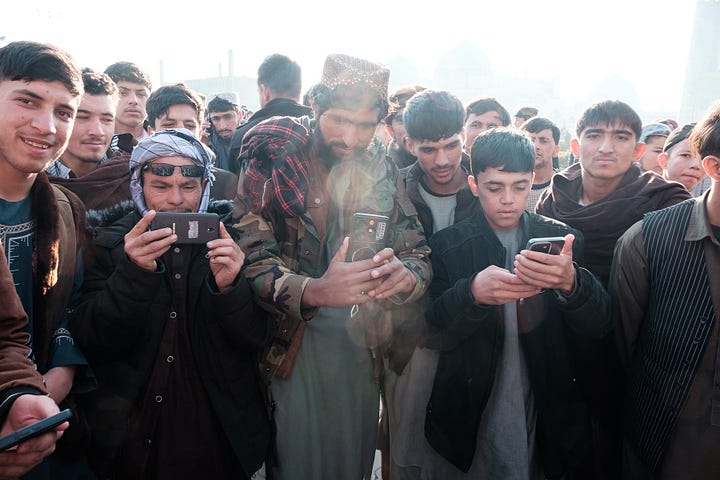
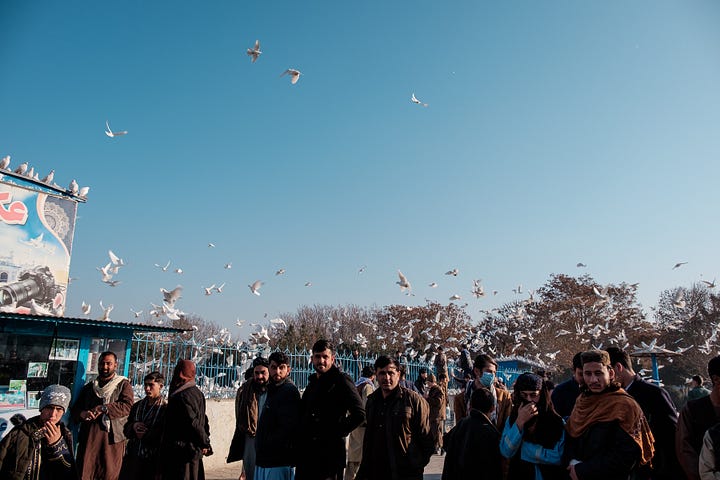
We then went to the sacred place that is the Shrine of Ali in the center square of Mazar-i-Sharif. Here, the right of entry for local women has been revoked by the Taliban. The men manning the entrance gave us a ticket and explained we could walk around but could not enter the shrine itself – that was reserved to Muslims. “And who is she?” asked one of them, pointing at me but looking at Xavier as if I was some mute decorative object. “She’s my wife”, said Xavier. “Very good”. This interaction too, would become customary in our journey throughout Afghanistan. The possibility that I was a human being capable of putting together a sentence to express myself wasn’t one they considered, or liked, for that matter. The fact that we could be a couple without being married neither. I wasn’t sure which one would displease them the most.
We had been told to ask the Taliban for a safe place to park our van and sleep, rather than finding one ourselves. Their many members patrol the streets of each city, and it wouldn’t last long before they found us and asked us questions. As much as their government wants to promote tourism, they are still incredibly skeptical of people who aren’t their own. Therefore, we returned to the ministry of culture building and asked the armed guards about a place to stay. They called their superior, a 65-year-old man with a white beard and a soft face – very unlike others his age who look precisely like what they’ve been through: ruthless, harsh, the kind who have experienced many hardships and difficult choices. He indicated the very same courtyard we were standing in, the one of the ministry. It was guarded by 10 men at all times and would be the safest place in town. It got me thinking of the bombs and attacks targeting Taliban. If they are the targets of the attacks, are we really that safe being around them? Or is this, actually, the worst place? The old man typed in Pashto on Google translate on my phone: happy here with no sorrow. I guess that was that. An hour later, we walked out of the van, approaching the bolted metal door. We wanted to go out for food, we explained to them. They told us that we weren’t allowed out after dark, for our own safety. I smiled as I thought how thin the line between being safe and being a prisoner was. Little did I know at that moment that these would be the first and the last Taliban who would talk to me directly.
When the night came and I crawled into bed, my body ached from making itself as small as possible the whole day. Although an impossible task, making myself as tiny and invisible as I could was somehow an unconscious behavior I started having throughout Afghanistan. There were people and places who made me feel safe but it was always between 4 walls. The street is a difficult place to be for a woman, Afghan and foreigner alike, although for different reasons.
On our second day, we drove from Mazar to Samangan, which felt very rural. The Taliban guarding the entrance to the province laughed in an amused way when they saw that the road pass was in my name, and I was driving. They requested a permit from Samangan: we explained we didn’t have it, since we hadn’t arrived in Samangan yet – which was clear given the direction we arrived from. They repeated: to proceeed to Samangan we needed this permit that - illogically - can only be obtained in Samangan. We gestured, on an imaginary map, that we came from Mazar in the direction of Samangan and therefore couldn’t be in the possession of the permit. It took all of 15 minutes and 5 Taliban to let us go, out of frustration, not understanding.
These interactions made it increasingly clear that the Taliban didn’t know any other language than their own Pashto and they couldn’t write it – except for that older man in Mazar. Later, when we met some travelers in Kabul, we joked that some of them truly looked like their brain cells weren’t connecting. Their aggressive faces feel like a mask for the immense lack of education for anything else than their own tribe.
Driving into Samangan, there weren’t any women covered in anything else than burqas. Their eyes couldn’t be seen through the holes. They were identical, unidentifiable creatures roaming close to the walls, avoiding the public space. Even their posture didn’t give away their age, the wide blue garment concealing everything. I looked for a smile to give, or receive, for someone female to acknowledge me; nothing came. Or if it did, I couldn’t see it. We stopped on the main square of the little town, a few dozen meters from a simple restaurant. I stepped out with my scarf loosely covering my hair. When we approached the restaurant and I almost walked through the main door, they rushed me to a side door. Xavier was following, almost running. They closed the curtain separating the main area from us; the main one was full of men eating. I learned here the concept of “family room”, which is a hidden, smaller, often windowless room where women are allowed. The waiter kept looking at the ground, seemingly explaining the menu to the carpet. This whole play in which every individual present has a specific role became clear: my sole existence bothered them. Showing my face was an unthinkable offense. I became angry, furious. But stating my point wouldn’t help me nor local women, it would simply dig my and their grave deeper. When we walked out, I covered my face up to my nose. It felt as though I was giving up my right to exist. But in their eyes, concealing myself was the way to regain that right. At least to some degree.
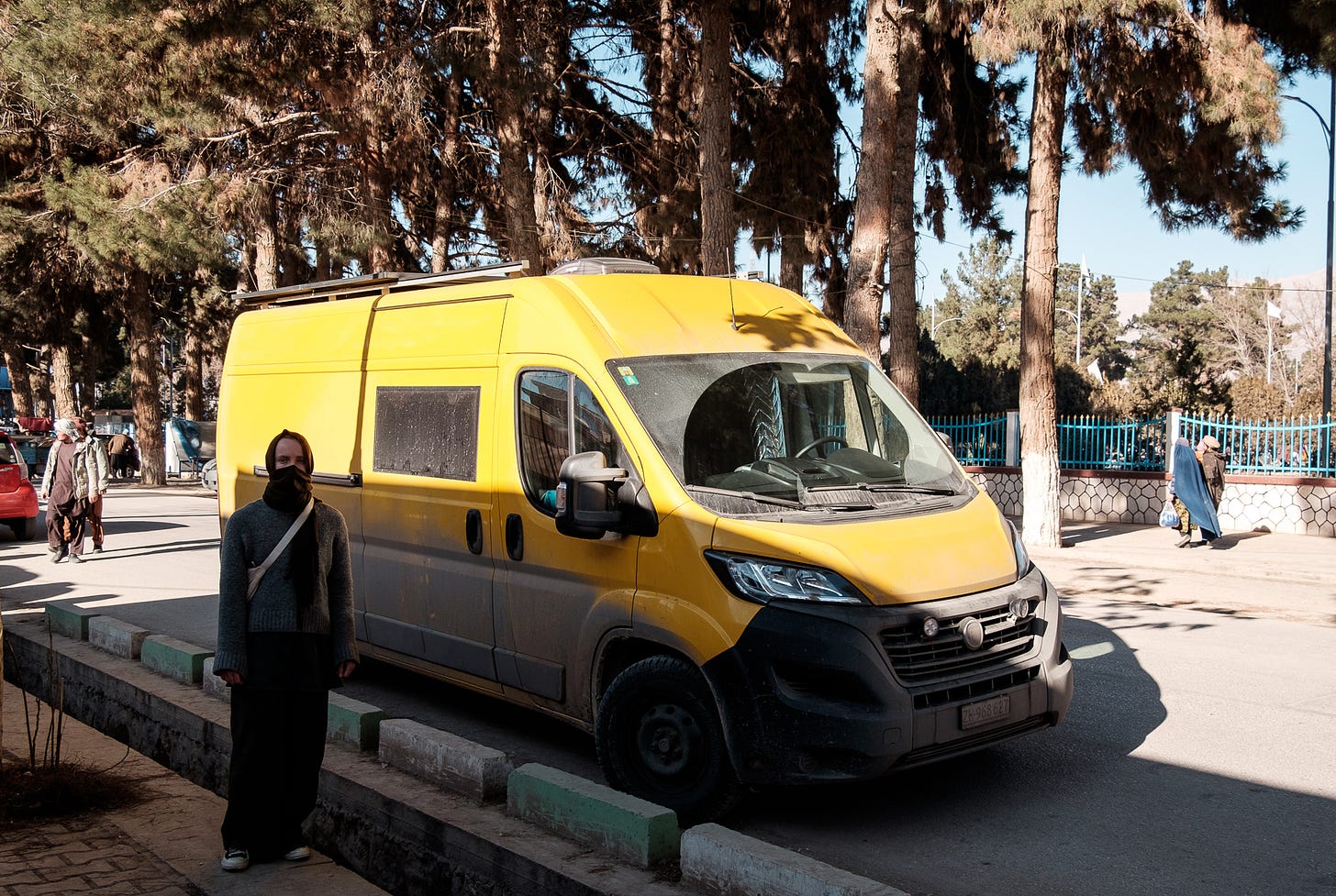
Afghanistan kept being a catalyst for reconsidering our opinions and expanding our comfort zone. After bending the rule that we wouldn’t travel through Afghanistan, we bent the one saying we wouldn’t travel via Kabul. Our research had taught us that what we could potentially be afraid of wasn’t the current Taliban government but one of their enemies: the Afghan branch of the Islamic State. The Islamic State and the Taliban don’t see eye to eye. This results in monthly attacks towards the Taliban government – and civilian at times – and they take place in Kabul. We quickly learned that our trip through Kabul was mandatory to pick up some permits we couldn’t travel further without.
Two days and a night in a truck stop guarded by three armed teenagers later, we reached Kabul. We drove in through its spectacular hills. They looked just as I had imagined them: familiar, somehow. And there it was: the very first kite, flying against Kabul as a backdrop. Looking like a cordless piece of paper, floating in the wind, as a blaze of hope for what’s to come.
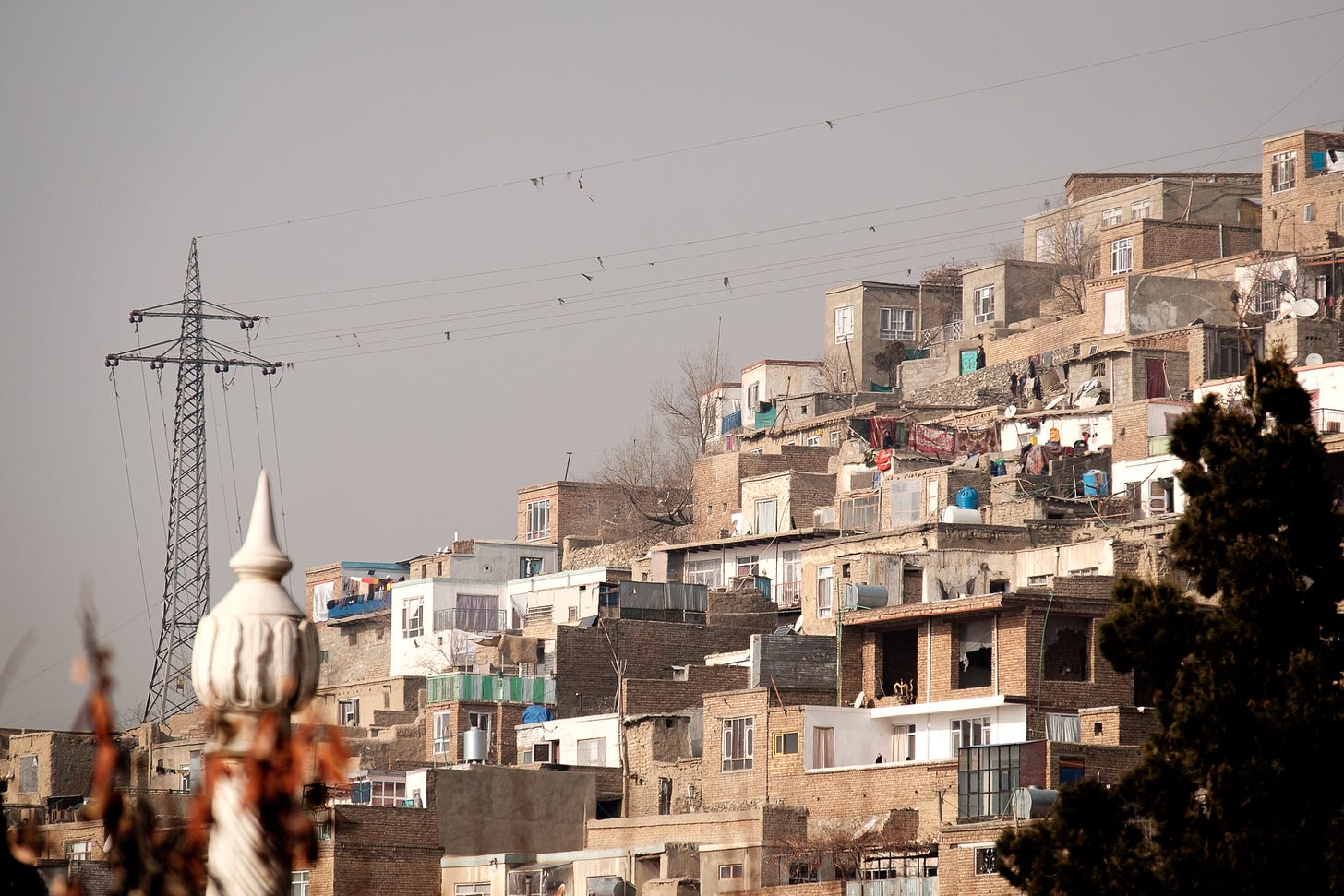
Kabul was a sight that would remind us time and time again that we thrive in finding ourselves in new place for the very first time. We often refer to doing things for the first time or tasting, trying. Have you ever thought about the very first time you were present in a new environment unfolding around you? It’s a very different experience. It is a feeling so powerfully overwhelming but gone in an instant. And so half a day turned into a day and a day turned into a week. We found that for each side of the Afghan capital that put us off, five as many would keep us wanting to see more. The bustling markets that take over the streets, the thick smoke from the kebab stands at each corner, the sights over the mud houses climbing up the steep hills, the talkative shop keepers. With its own personality, Kabul is light and heavy simultaneously, with its countless cultures converging and historical battles.
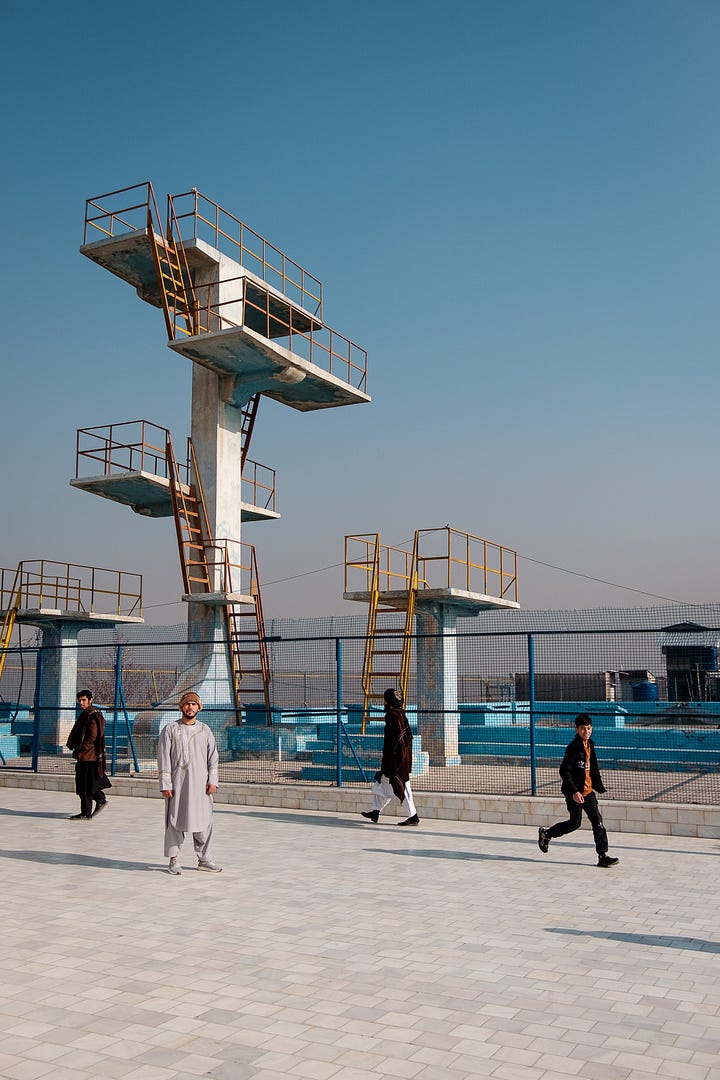
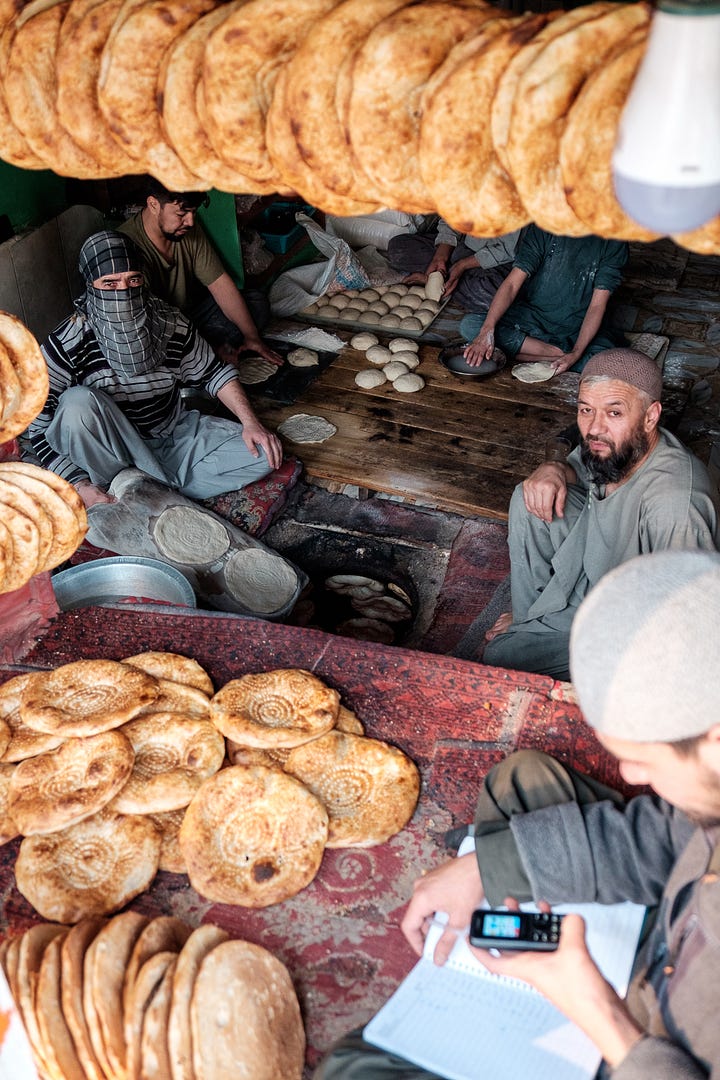
The flip side of the coin is that the police is everywhere. And by everywhere, I mean exactly everywhere. The Taliban have vowed to make Afghanistan safer and more stable. While the results are positive, the means not so much. Weapons are flung across the backs of the thousands of officers who patrol the streets, scanning for danger but also for bad behavior. There is a special type of police, they belong to the Ministry for the Propagation of Virtue and the Prevention of Vice. A head scarf too revealing, taking pictures of living beings, smoking or playing music are all strongly reprimanded. Dressed in a white cotton suit, making them visible from afar in Kabul’s dusty alleys, their sole presence creates stiff and puppet-like citizens. It resembles a bad comedy. The privilege of being a tourist – and hence immune from most of these rules, or at least the consequences if I were to break them – tempted me more than once to flirt with sinful behavior. On one occasion, I followed Xavier into a park, learning later that women weren’t allowed in parks anymore. I then proceeded to take pictures when five locals playing volleyball asked him to join. As I watched the game, I could see from the corner of my eye shadows gathering behind me. I felt several pairs of eyes pierce through my back. When Xavier joined in to take pictures of the highly skilled players, it turned out to be what tipped the scale. After some whispering back and forth behind us – it took some courage to stay exactly where we were, feeling unwelcome – a kind young man came up to us, looking uncomfortable but plowed forward in his request: “It is forbidden to take pictures in the park, would you please stop?”. The way this unfolded would become the common way we interacted with the Taliban in Kabul: through the intermediary of an English-speaking local, ordered to deliver a message to us.
Another time, as I was observing some large citruses that I wasn’t able to identify, a short woman in her 40s appeared out of nowhere telling me they were bitter oranges, typical of Afghan winter. She also asked what my job was and when I asked her, she was already running away. She stopped to tell me she worked for an NGO that helps educate girls. I didn’t have time to ask the question that was burning in my chest: is this allowed under this government? She disappeared like a leaf in the wind among the crowd of hats. How much she risked by being seen talking to me, I can’t be sure. I do hope, however, that her mission continues despite the announcement that NGOs employing women would close – it came a few days after our encounter.
I was faced with a constant struggle: one side of me wanted to go against them, hurt their egos by stomping into places I wasn’t supposed to be in, wearing pants and a loose headscarf. The other side of me was forced to admit that by doing so, I was probably only doing local women a disfavor. By offending their government, my personal victory would end up being their downfall, proving the point that women should be hidden so as to never end up like the Western ones. I did end up buying a black abaya, a long dress Afghan and other Islamic women wear outside, over their clothes.
The Taliban also direct their efforts towards men, however less intensively. An Afghan living in Vienna, who we met in Kabul, explained that he’d been stopped by the Taliban when he was walking on the street with an English traveler. They checked their phones, passports and permits. They even went through their Whatsapp conversations and asked who this girl was, that he was messaging – it was his sister. They also showed up in the hotel courtyard, where he was sitting, talking to a female German traveler and proceeded to tell him that “this isn’t going to help you for the world after this, talking to foreign women”.
Afghans don’t celebrate New Year’s – they celebrate Spring, on 21st march instead – but our hosts in Kabul did want us to have a festive evening. We remembered we had bought a bottle of wine in Georgia back in September. It had crossed all borders with us – a symbol of resistance against the aggressive corruption and bribes characteristic of Central Asian borders. There wasn’t a better opportunity than to share it with our hosts – who indulged in alcohol from time to time, especially abroad since it is highly forbidden in Afghanistan. As we sat on their living room floor, we raised our teacups filled with red wine and our host said “Bismillah” – the direct translation being “In the name of Allah”, usually said as a blessing before eating. The absurdity made his friends choke, out of laughter or shock isn’t clear. What was clear however was that the resilience, humor and sarcasm of the locals towards their oppressors are unmistakable: their acceptance cannot be misunderstood as weakness. Their strength lies in the ability to continue living.
After New Year’s, came the snow. It covered Kabul like a concealing coat for the trash and dust. With that came a revelation: the Taliban were nowhere to be seen. A bit of soggy snow was enough to allow us to have an excellent day without being overlooked by the giant eye. We chatted with locals, laughed with kebab sellers on the sidewalk, waved to passers-by and to bikers, who all seemed in an equally joyful mood. It was the type of day that fills your happiness jar so much it overflows in the euphoria one. The kind of day when a sense of wonder about the world and its people fill your eyes and heart. It seems like the Taliban are far less waterproof than they want us to believe. I am wishfully thinking they will be as defenseless against the strength and humor of the Afghan people as they are against bad weather.
What our trip through this country confirmed for us was that these men, following a primitive way of living, try to run this country but only contribute to the long list of oppressors who have failed Afghanistan. Today, the high price for safety is oppression, total or partial depending on which half of the population you belong to. For decades before that, the reverse was true. Infamously named the Graveyard of Empires, here’s to hoping Afghanistan will offer the same destiny to the Taliban.
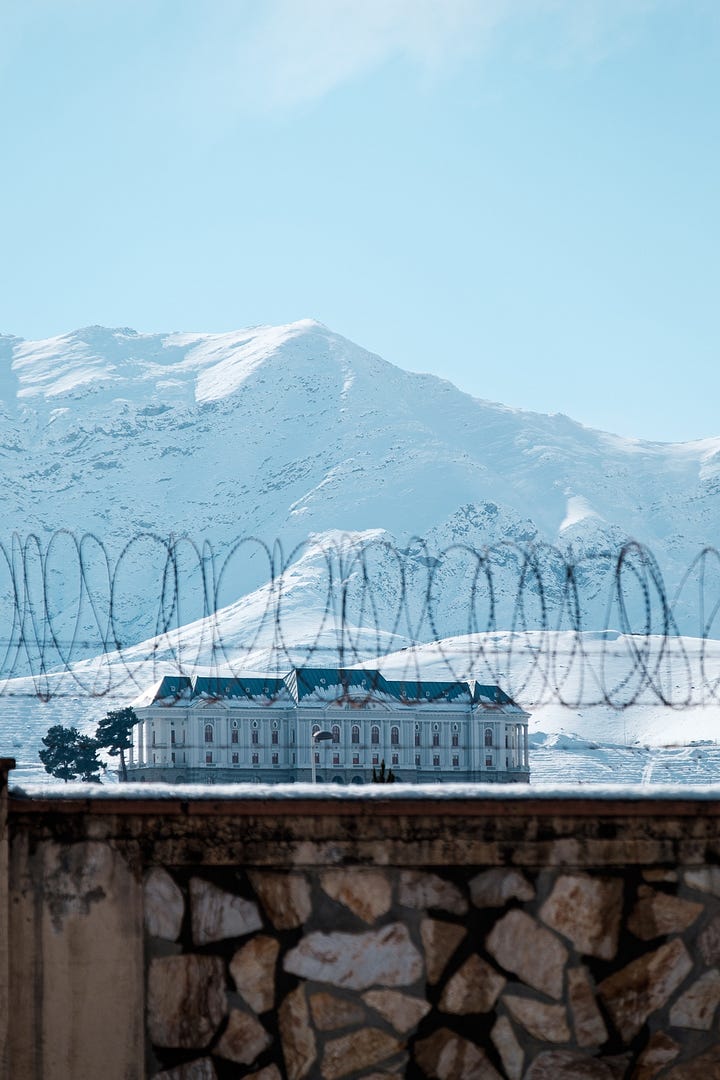
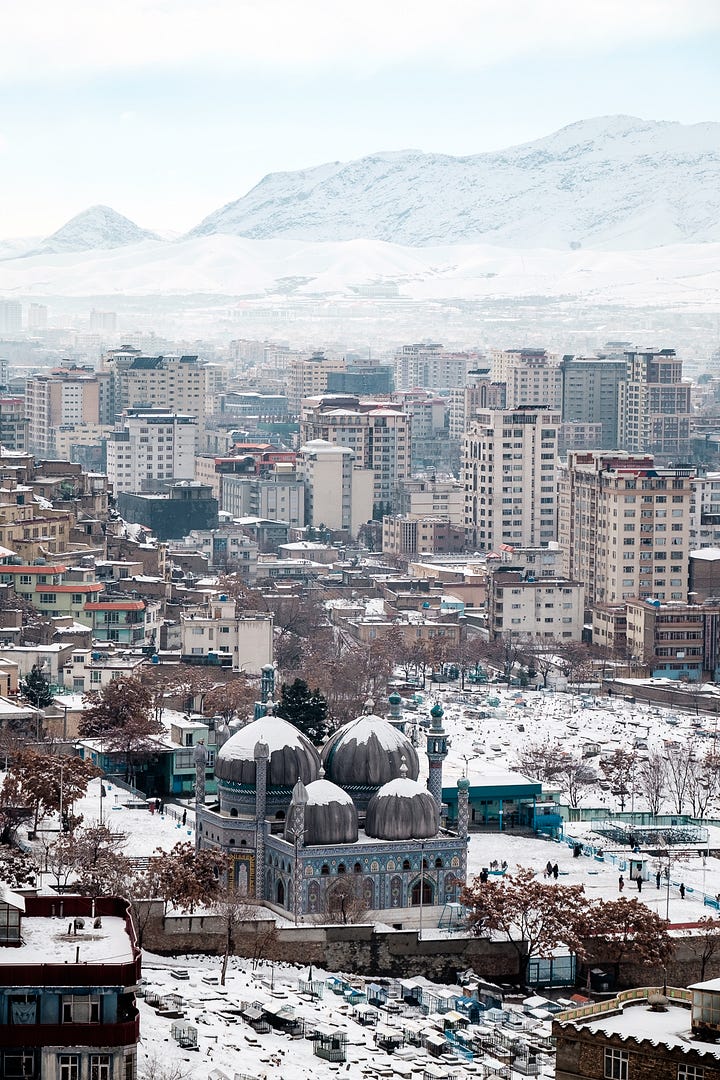
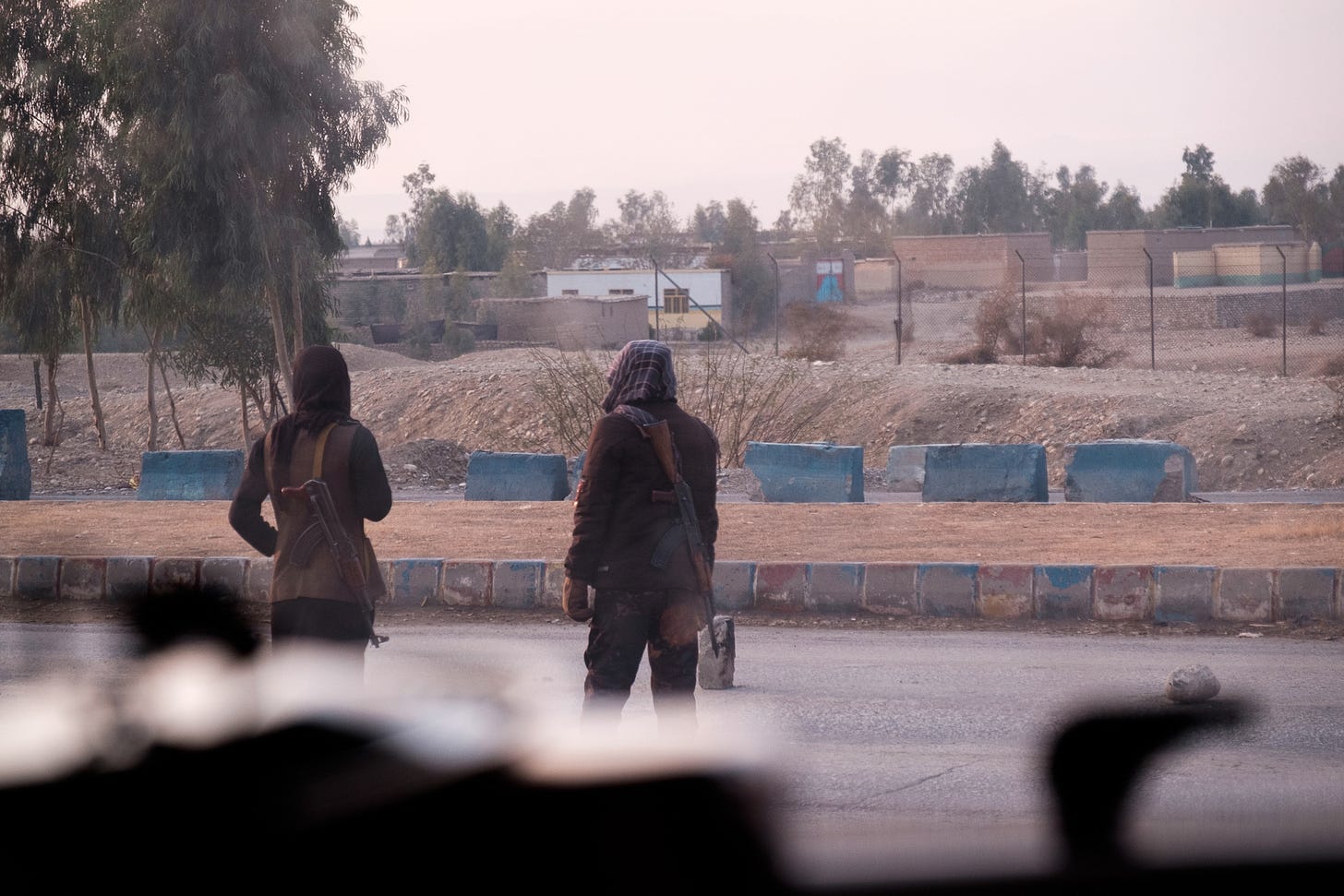
I wrote down these thoughts as we were traveling through Afghanistan so I could share it later with all of you. I would really love to hear your thoughts and comments :-)


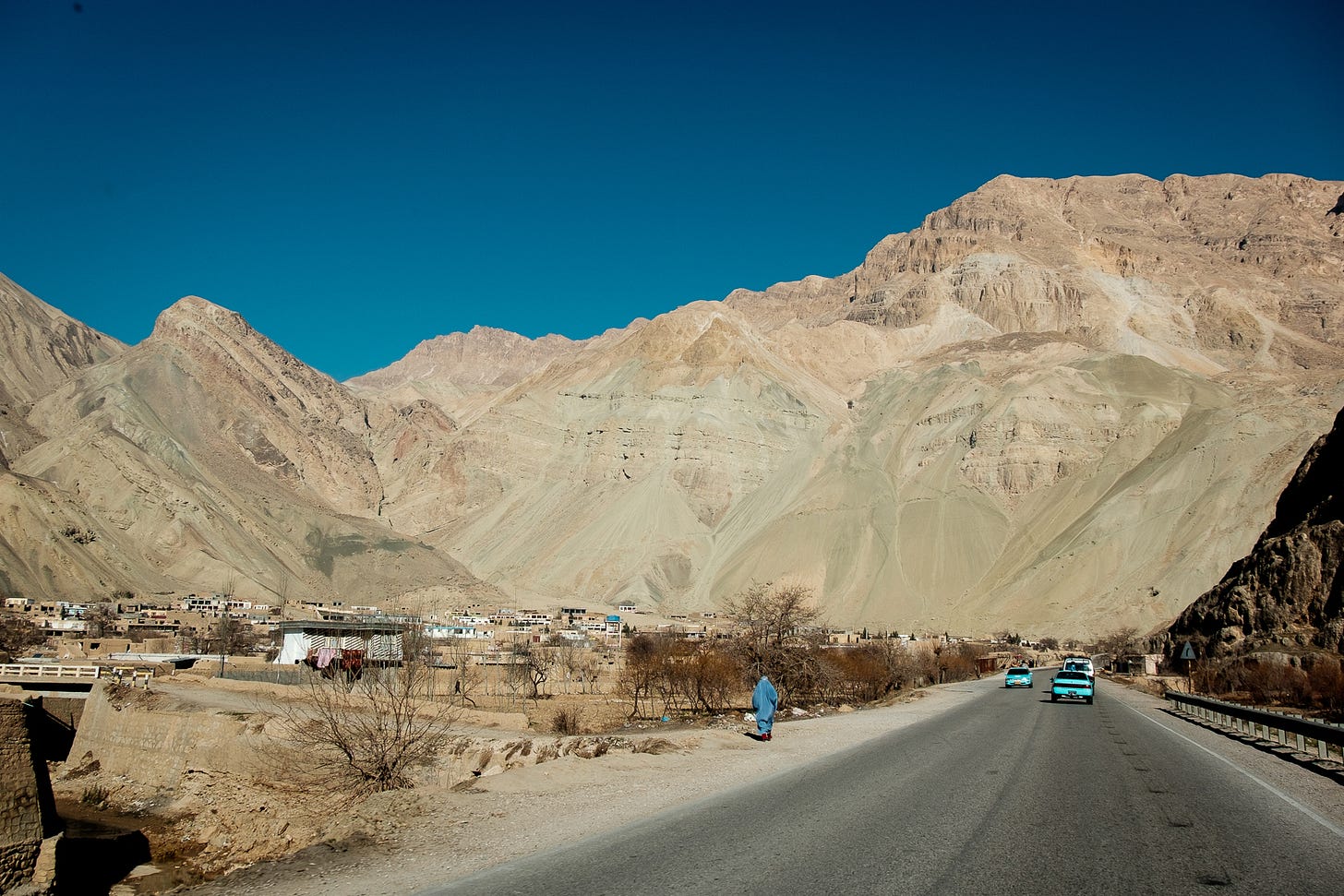
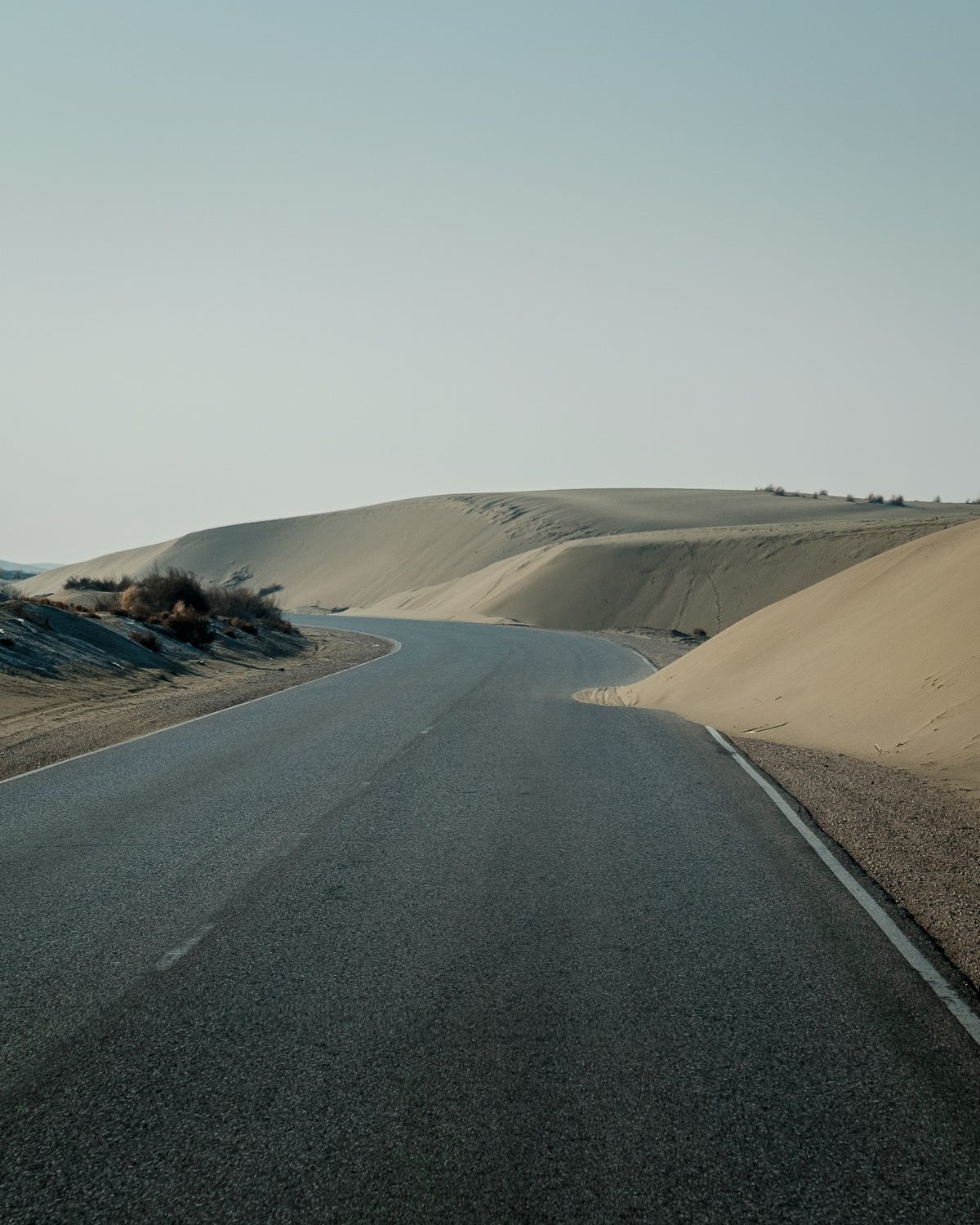
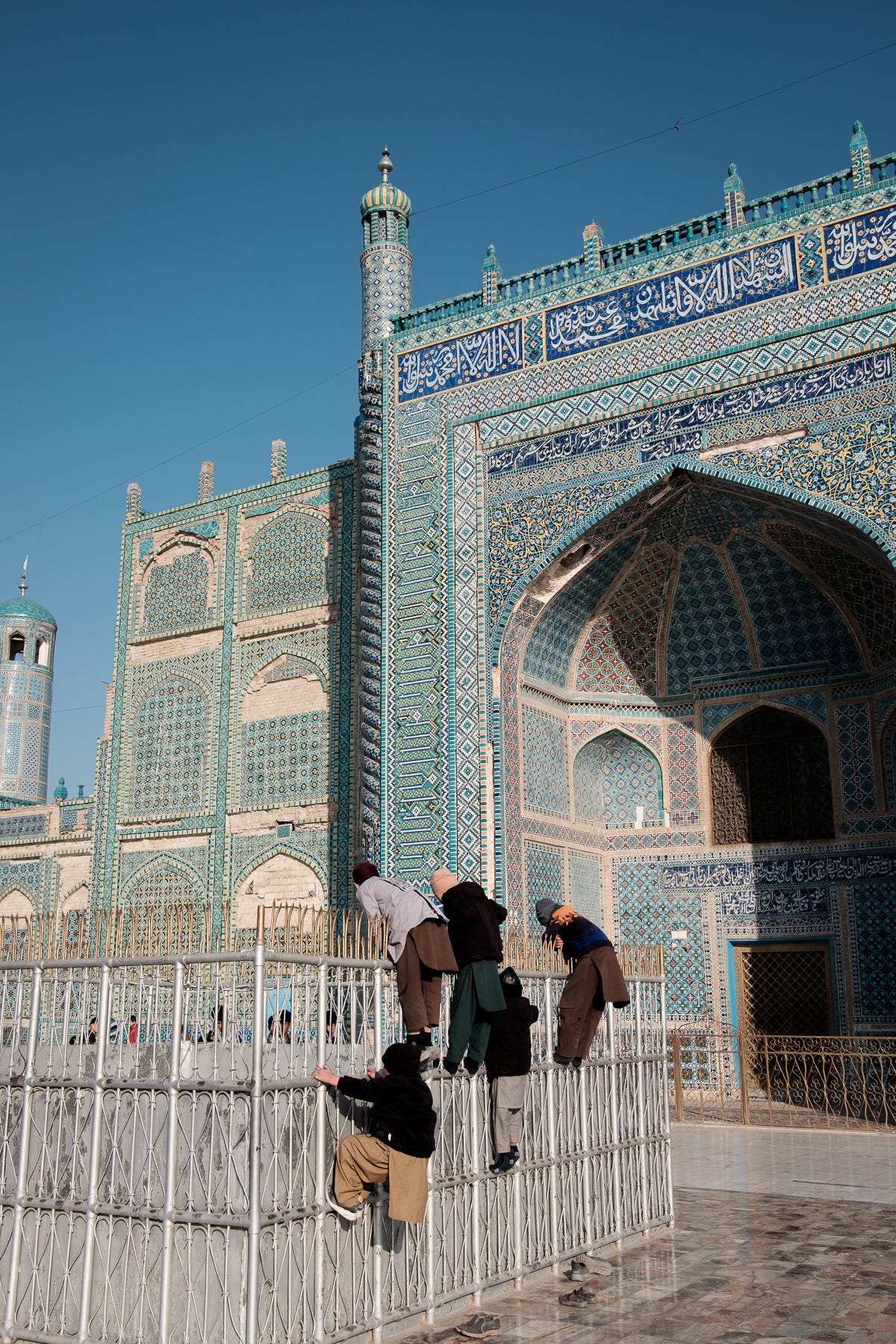
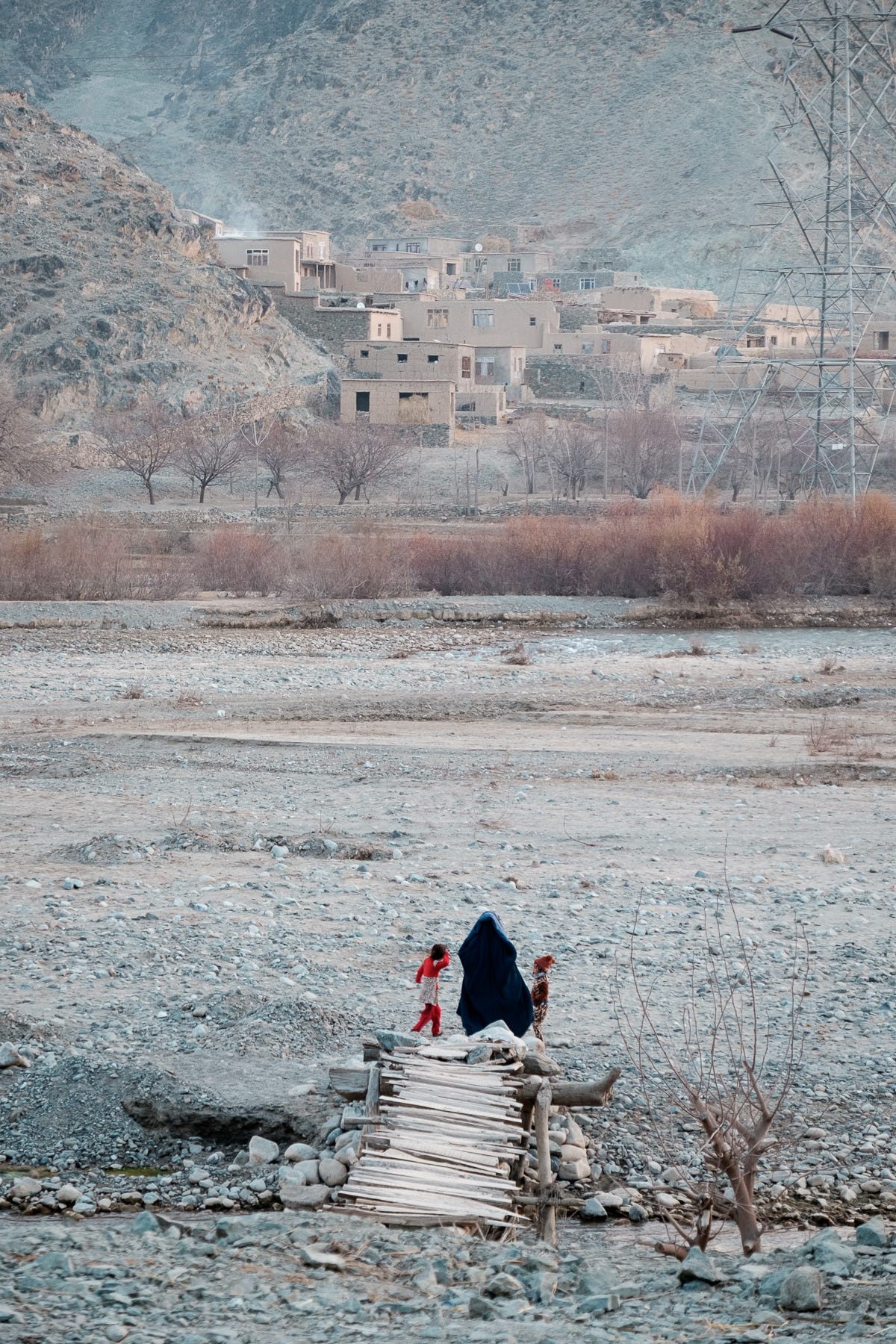
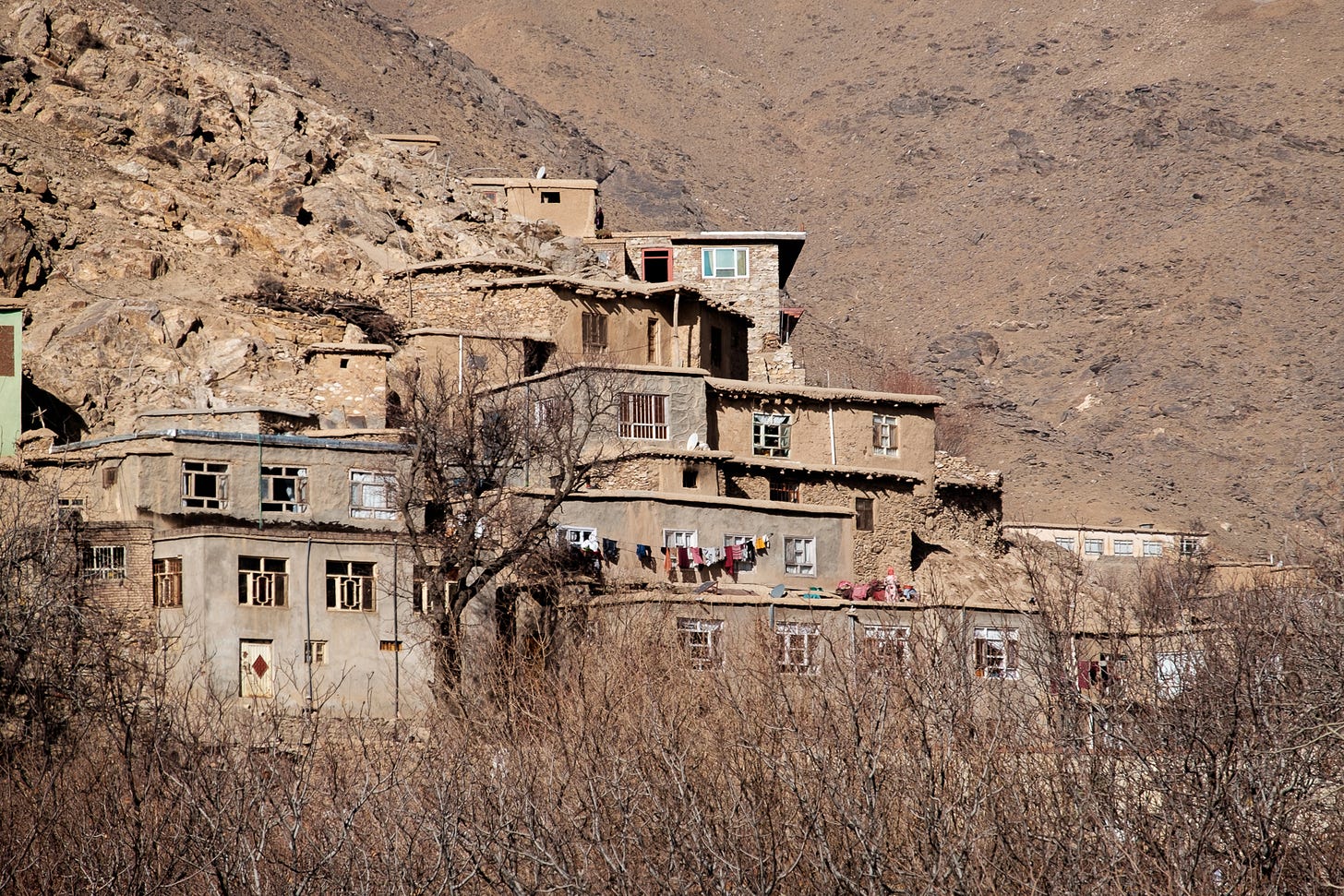
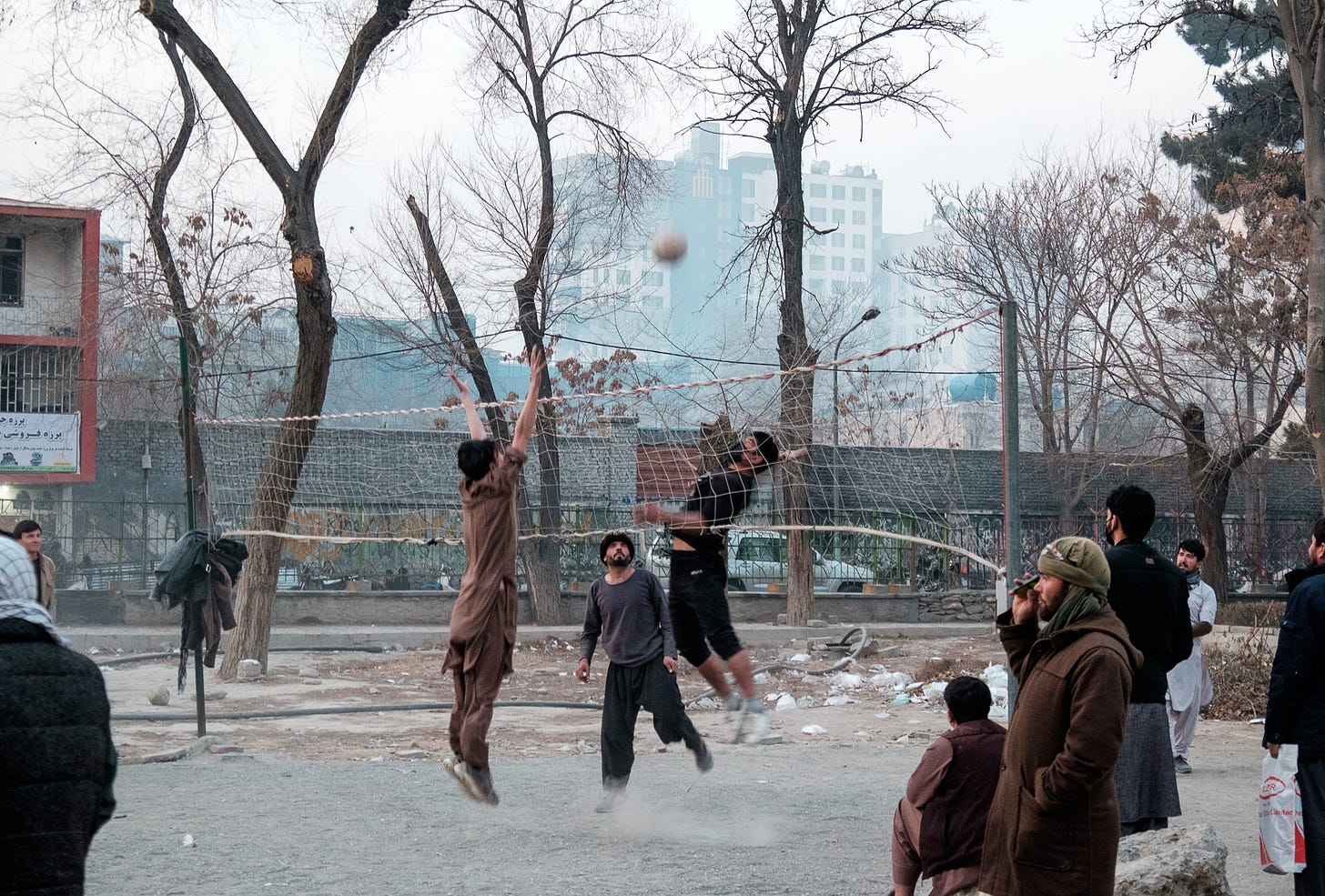
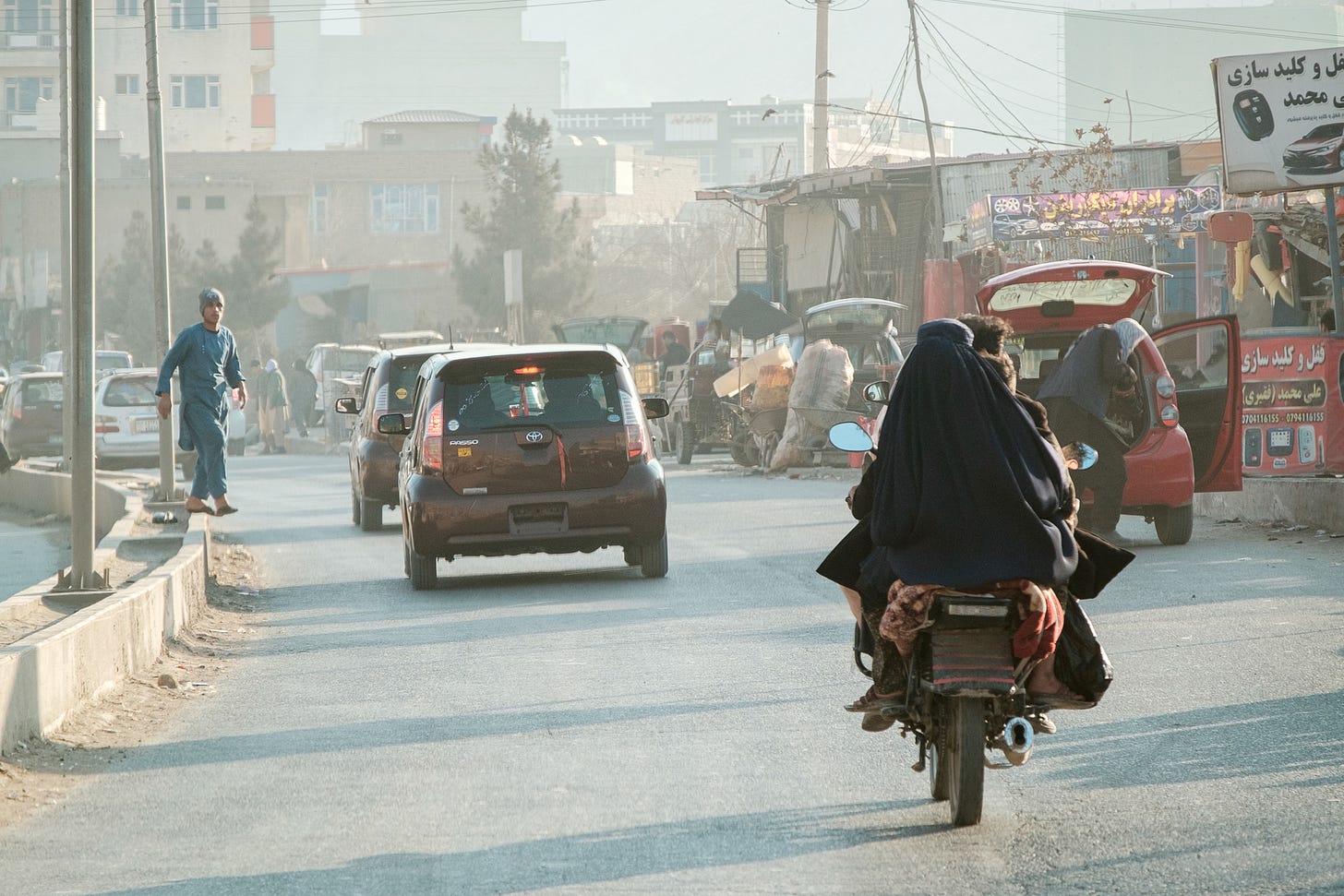
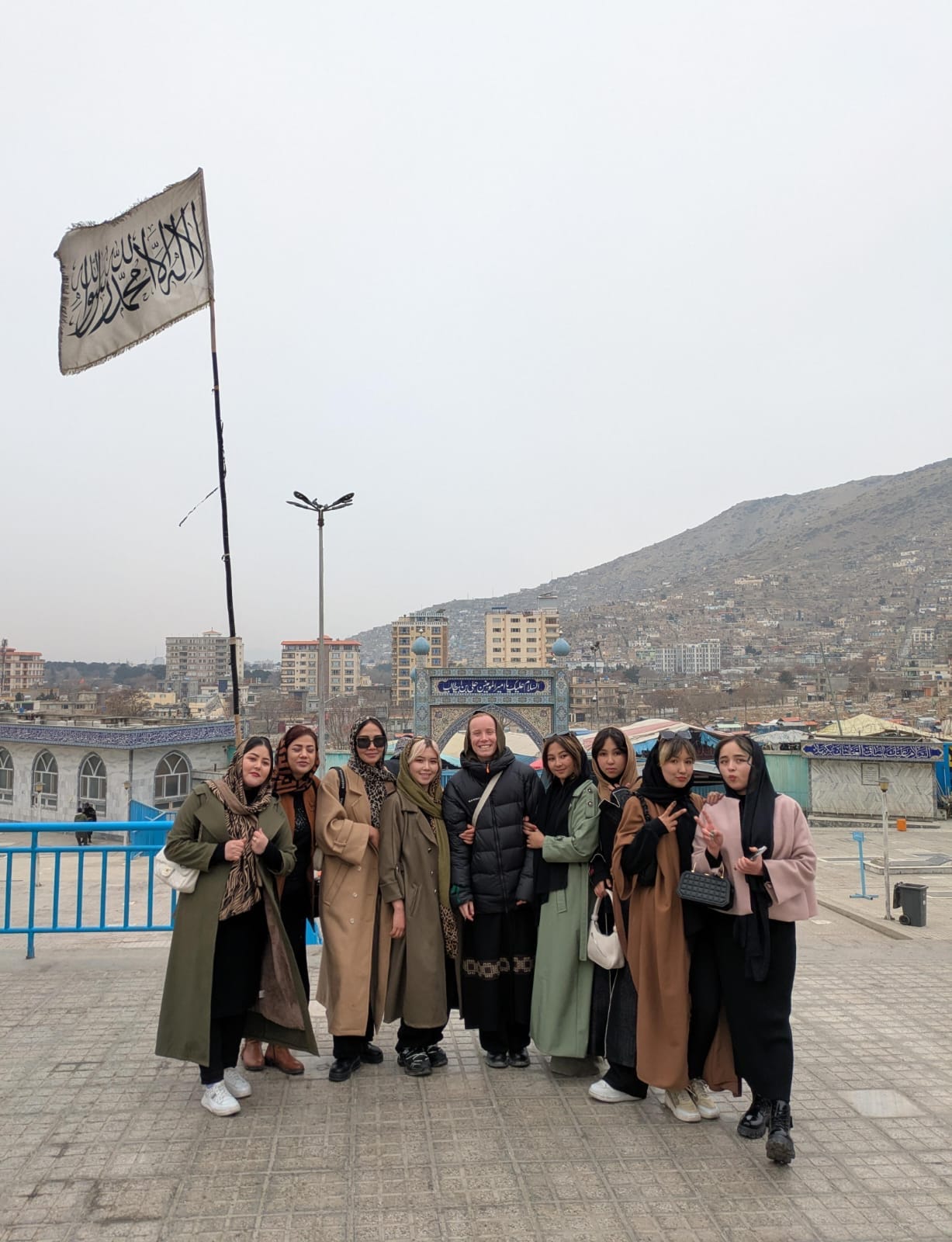
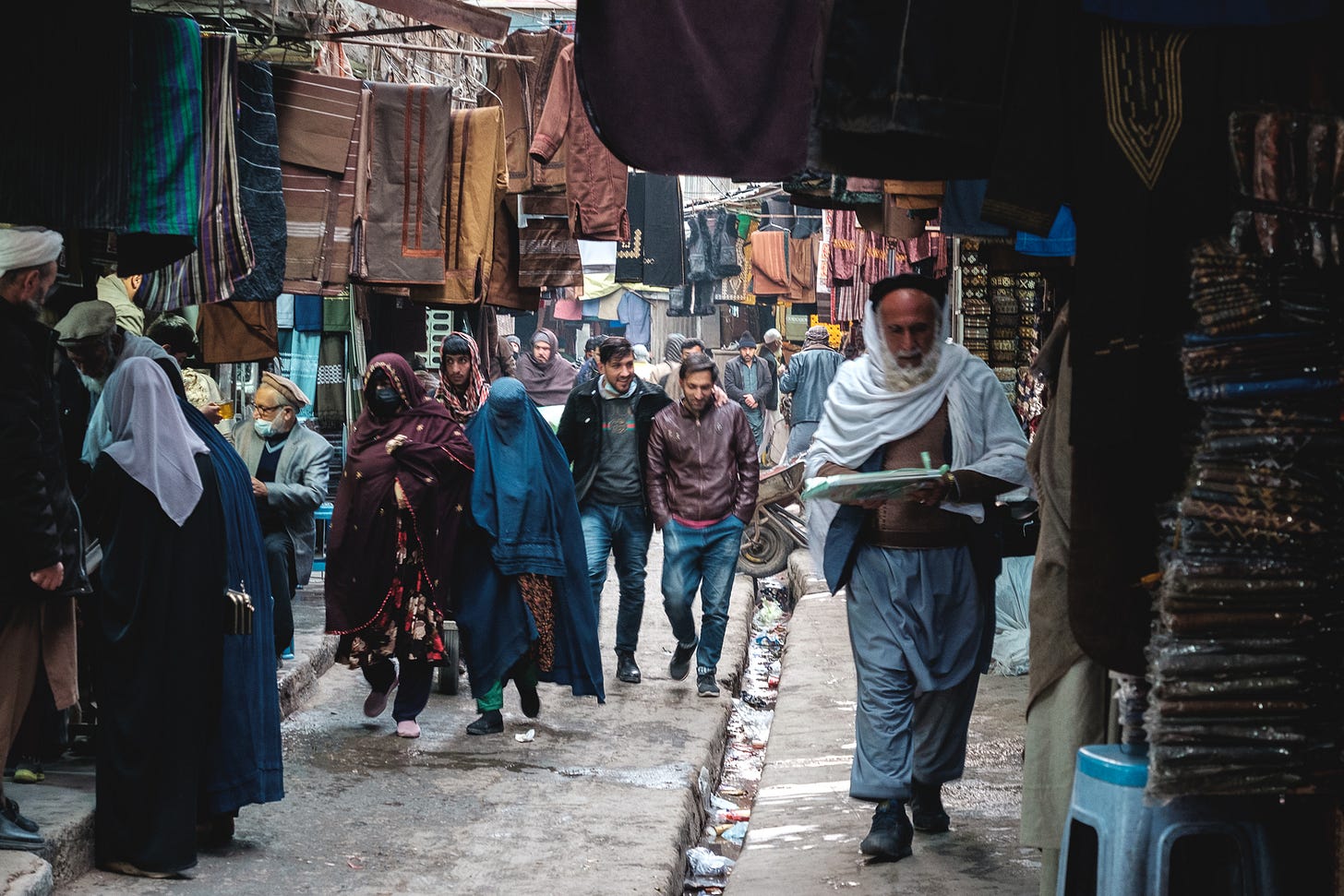
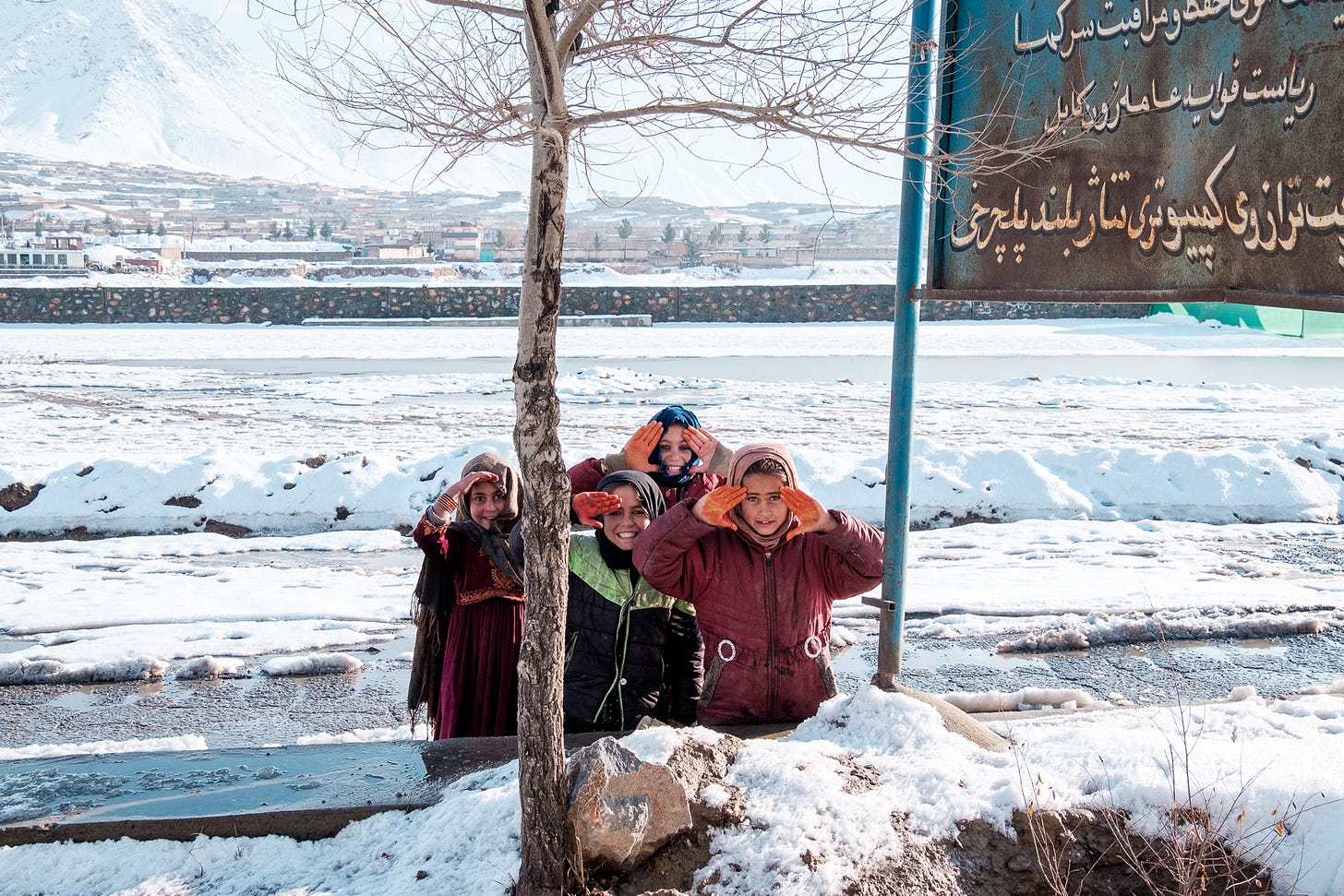
Merci, Lisa, de nous avoir fait découvrir l’Afghanistan et son peuple opprimé sous un nouvel angle. Tes paroles étaient très touchantes et m’ont profondément impressionné, surtout lorsque tu as raconté comment, inconsciemment, après seulement une journée passée là-bas, tu parlais déjà du fait d’avoir passé ton temps à te rendre invisible. J’imagine combien il a dû être difficile pour toi, née libre – comme il est naturel et juste de l’être – d’accepter de ne pas être considérée même comme un être humain. Et j’imagine ta douleur pour les femmes afghanes, contraintes chaque jour de s’annuler elles-mêmes. Une peine infinie mêlée à un grand sentiment de révolte qui doit pourtant être étouffé… Je partage également l’espoir d’un avenir libre pour le peuple afghan.
P.S. Félicitations, Lisa, tu écris très bien !
I was worried about you and Xavier, and I'm glad to hear that. Indeed, there are many awesome Afghan people. I wish you a fantastic trip ahead, full of joy.